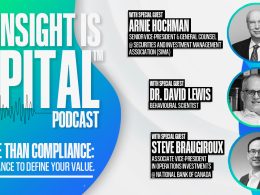by Ivan Hoff, Ivanhoff Capital
When I try to explain the stock market to people with no experience, I always start by telling them that buying a stock is just like buying part of a business. It gives you the opportunity to invest in other people’s ideas, participate in the growth of promising businesses and take advantage of consumer and economic trends. I admit, it is a very rudimentary explanation of how the stock market works, but I don’t want to scare people from the get-go.
This is the way Warren Buffett thinks and invests. You have probably heard of his favorite stock market story about one of his long-term holdings – Coca Cola. Coke became a public company in 1919 at the price of $40 per share. A year later, it was trading at $19 and the IPO buyers were down more than 50%. You can always find a few reasons why it was not a good time to buy it, but if your grandmother bought one share at $40 and re-invested the dividends, she would have had $5 million today. “There is never a perfect time to buy a great business”, Buffett says – “There are always reasons to worry, but if you are right about the business, you will make a lot of money over time”.
It almost sounds too simple, right? Buying a stock is buying a part of a business. The truth is that more often than not, there is a huge disconnect between a company and its stock. Sometimes you will spot a big consumer trend and a business you would love to own, but that does not mean that you have found a sure money maker. The odds are that other people have made the same observation and the stock market might have already discounted the trend.
You are never just buying a piece of a business. Take for example, the retail giant Walmart. If in the early 2000s, you thought that it will expand substantially over the next decade, you would have been absolutely right. Walmart more than doubled its earnings and revenues in the past twelve years. Do you know how much money its investors made? Almost Zero. Its stock practically went side-ways for 12 years. Earnings growth is not the only factor that impacts stock prices. Just as important is the P/E ratio that the market is willing to pay for it.
The outcome of your investment depends on the price you pay for it and on the price other people will be willing to pay for it in the future. There are no guarantees that if one company keeps growing its sales and earnings, its price will continue to appreciate. The market is forward looking and constantly discounts 6 to 12 months into future. When you buy a stock, you are not just buying a piece of business, you are buying the current expectations about the future of this business – sometimes, it pays to buy extremely low expectations – value investors’ approach. Other times it is worth paying for quickly rising expectations – momentum investors’ approach.
Investing is not only about owning part of a business, but also understanding how different catalysts will change people’s perceptions over time.
The information in this blog post represents my own opinions and does not contain a recommendation for any particular security or investment. I or my affiliates may hold positions or other interests in securities mentioned in the Blog, please see my Disclaimer page for my full disclaimer.
Copyright © Ivanhoff Capital














